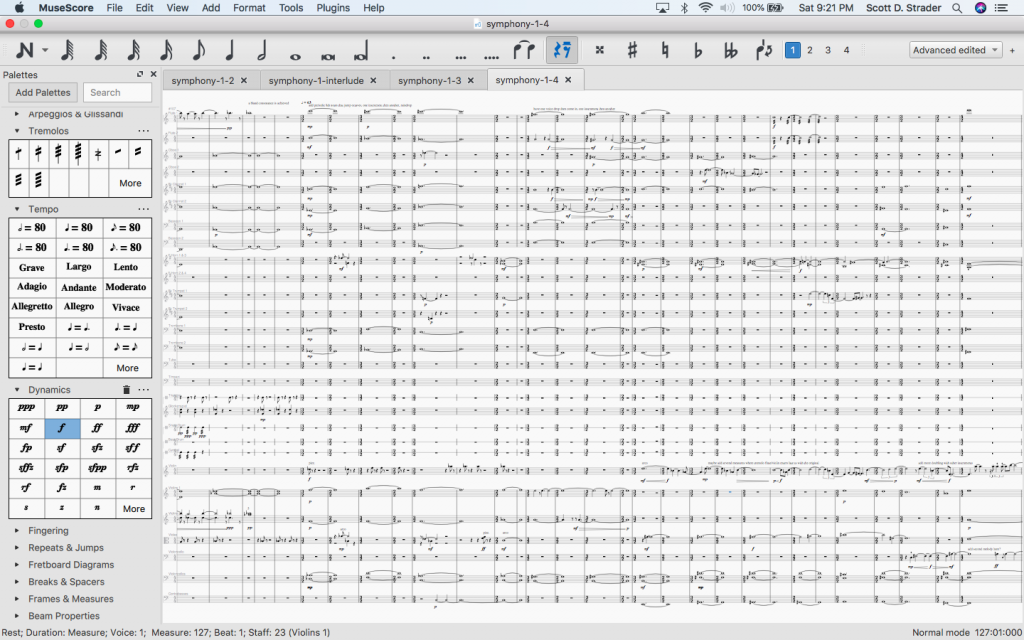Finishing up the last movement in the next day or so and knowing that the first movement is the final music that will be written is… confusing. Songs for the rock operas were always dramatically out-of-order, and endings could come before beginnings, but having done it before doesn’t diminish the creative uncertainty. The order of music-to-paper dictates which themes will become themes and so the first melodies written will seed the subsequent sections. My compositions are always dramatically structured–and built off of a general blueprint of sonic techniques–but the musically thematic ground gets laid when the first notes get written.
And yet writing the first movement last means that I can hint at what I know is to come. It can’t be a camp, musical overture type of collage, rather a reverse echo of the future.
I’m cautious about my progress. This Wednesday will be six months since the start and–with completely arbitrary concern–I feel like the composition process has gone more quickly than expected. Maybe? Looking back, I said six-months-to-a-year and that’s likely the case, but there’s still a childish “did I suffer long enough?” impulse upon reflection. We’ll see what suffering is after I start the first movement.
A while ago, I watched this video examining Mahler’s orchestration for the 4th movement, Adagietto, of his Symphony No. 5. It starts with a lot of extraneous history of both the composer and the work that is useful, but some key moments at the heart of the analysis were instructive and humbling. The meat of the analysis starts at ~3:40 if you’re following along at home. Recommended. Beyond metrical exegesis, there are observations of such subtlety in the orchestral arts that I want to abandon what I’ve been doing and become a brick layer (no offense to brick layers). I’ve never deluded myself that my undergraduate experience and work with rock songs gave me anything more than a dilettante’s skill, and studying scores on my own are instructive, but the nuance of–even YouTube-based–credentialed analysis reaffirms my “skills”.
And my ambition to learn the physical qualities of the instruments–the range of each violin string and the melodic implications of jumping between them; the positions and fingerings for brass or woodwind instruments–has been… unobtained.
To continue the enumeration of deficiencies (wonderful to do to add to the stress of finishing a work) I know that converting the score and mixing it in Dorico will be a mountain of effort in itself. I work in MuseScore, and navigating through it while I compose is relatively transparent. Dorico–because I don’t have similar, daily interaction–is much more opaque.
